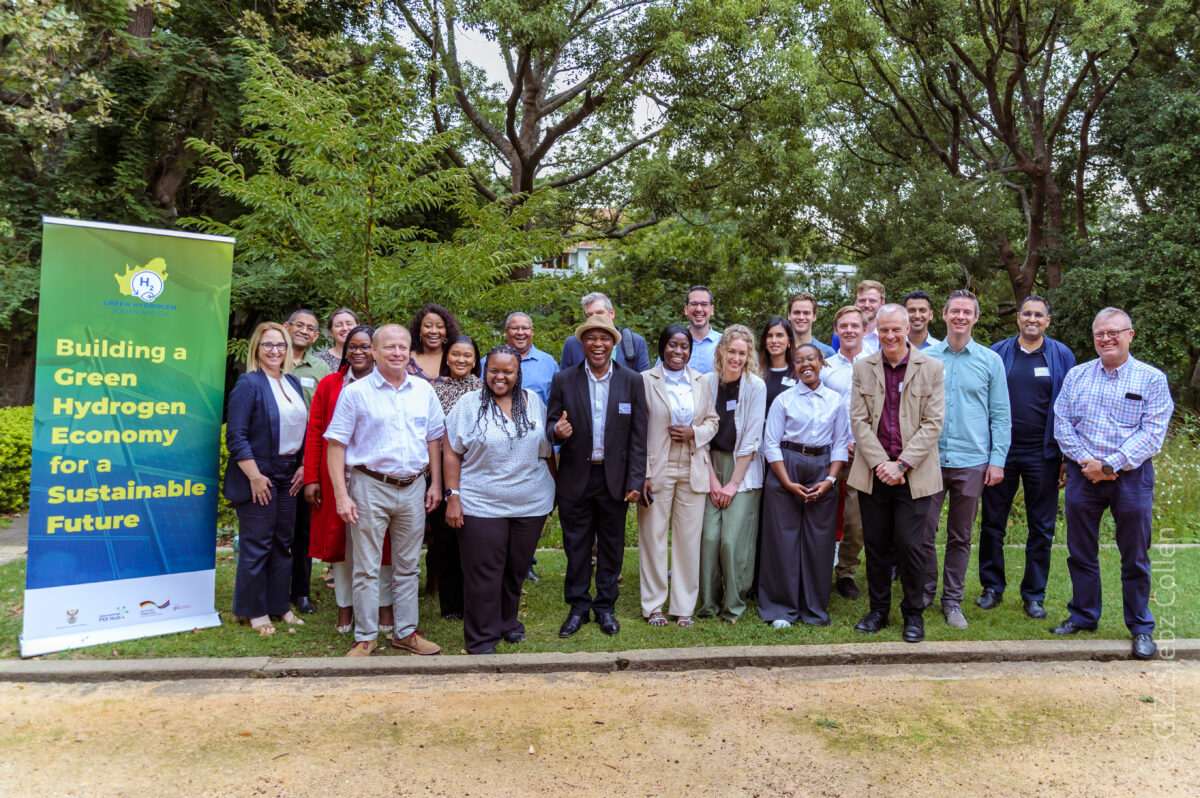
National and International Exoerts at the Green Hydrogen Future at Expert Exchange Workshop
The Centre for Renewable and Sustainable Energy Studies (CRSES) of Stellenbosch University with its Hydrogen Engineering Platform, in collaboration with Renewables Academy (RENAC) represented by Charlene Rossler, on behalf of GIZ within the H2.SA programme, hosted the first in-person workshop of the Expert Exchange Event Series at the Stellenbosch Institute for Advanced Study (STIAS) on Monday, 07 April 2025. This event is an international effort to support the development of a green hydrogen economy in South Africa, focusing on raising awareness, advancing Power-to-X (PtX) technologies, and building the skills needed for a successful energy transition.
Prof Craig McGregor from Stellenbosch University introduced the CRSES and its offerings, including short courses related to green hydrogen. In his keynote address, Prof McGregor offered a critical assessment of South Africa’s readiness to meet the ambitious national and EU targets for green hydrogen production. Fulfilling these goals would require developing multiple 1-gigawatt (GW) projects significantly larger than the world’s current largest operational electrolysis plant, the 260 MW Sinopec facility in China, and a 250-fold scale-up compared to the current median of 4 MW.
Prof Fletcher from the University of Cape Town presented the GreenQUEST project, which he coordinates. His talk explored how green hydrogen can be used to synthesise clean fuels, particularly for cooking and Care-O-Sene, providing alternatives to traditional fossil fuels and supporting cleaner air and energy security.
Two representatives from two different Fraunhofer Institutes Ms Telsche Nielsen : Fraunhofer Institute for Wind Energy Systems (IWES); and Dr Guido Hora: Fraunhofer Institute for Surface Engineering and Thin Films (IST))
shared examples of training structures and innovation hubs in Germany. They spoke about ongoing work at the Hydrogen Lab in Bremerhaven, the Hydrogen Campus in Salzgitter, and the HySecunda initiative. These projects highlight Germany’s investment in training and infrastructure to support its hydrogen economy and offer practical insights relevant to South Africa’s context.
Dr Teifel delivered a presentation on the concept of “valleys of death” in industrial innovation, critical phases where many projects fail to move from pilot to commercial scale. He challenged participants to think critically about how to overcome these barriers. As part of an interactive session, Dr Teifel facilitated a group exercise in which participants were divided into four stakeholder groups: Technical & Industry Operators, Policy, Legal & Social Governance Actors, Energy Buyers & Offtakers, and Funders & Guarantee Partners. Each group explored their specific role in supporting South Africa’s just energy transition and how cross-sector collaboration could unlock the potential of green hydrogen.
The workshop at STIAS was organised by RENAC and supported by GIZ. The program includes webinars and additional workshops across South Africa, aiming to foster collaboration between South African and international experts and build a strong foundation for the country’s green hydrogen future.



